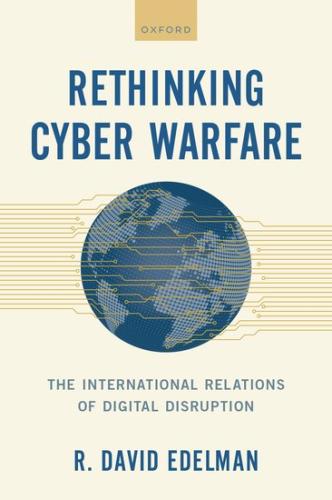President Trump’s announcement that the United States recognizes Jerusalem as Israel’s capital, and that the American embassy will relocate, is—not surprisingly—going over badly with Arab partners, allies in Europe, and beyond. At first glance—and as many analysts have pointed out in recent days—his pronouncement appears somewhat incoherent with the administration’s stated policy of revitalizing peace talks and achieving what Trump has famously called “the ultimate deal.” It contradicts efforts to contain Iranian influence, which might benefit from Palestinian frustrations. Ever since Congress passed the Jerusalem Embassy Act of 1995, presidential candidates have promised these moves from the stump, only to realize once in office that the Jerusalem issue is a clear third rail, not to be touched. But unlike his predecessors, Donald Trump delivered.
Why would this president move in such a direction, against the advice of his own national security team, including his secretaries of defense and state? As reports indicate, the decision was quite personal, so it is fair to assume that President Trump was simply fulfilling a campaign promise on a popular issue among Republicans, as shown in recent polls. It belongs to the category of Trump’s foreign policy grand gestures that are high on symbolism and low on effective policy change, in that sense similar to his decisions on the climate change accord or the Iran nuclear deal.
Nevertheless, whatever is behind the president’s decision, the move is pleasing many of Trump’s supporters. Prominent pro-Israel Jewish activists such as Las Vegas real estate mogul Sheldon Adelson may be among the loudest to applaud President Trump for his decision, but there is no doubt that the verdict on Jerusalem is of incredible significance for the broader GOP Christian base. Take note, for instance, that the religious right’s chief representative in the White House, Vice President Mike Pence, stood right over Trump’s shoulder during the announcement, evidently elated by a decision he long supported. The Jerusalem decision should remind us of the remarkable influence that Christian fundamentalist worldviews have enjoyed over Republican foreign policy for the past four decades, in particular the views of Christian Zionists, who believe that the return of the Jews to the Holy Land is in accordance with God’s will, and biblical prophecy.
An ancient Protestant Evangelical tradition
Today’s Evangelical support for Israel’s vision is born out of the combination of deeply held religious beliefs, historical evolutions, and the politicization of the Christian right. The term “Christian Zionism” is an oxymoron in a way, yet it encapsulates the paradox of a religious belief supporting a secular territorial objective. This ideology has deep religious roots, dating back four centuries.
Proto-Zionist ideas were already present at the birth of several Protestant sects in 16th-century Europe, when close and inductive readings of the Bible born out of the Reformation renewed interest in eschatological debates. It led to a new understanding of the role of the Jewish people in Christian history, leading some to prophesize a return of the Jewish people to the Holy Land. Several versions of these theological debates made their way to America, popularized by the Great Revivals of the 1730s and 1810s, and expanded with the growth of Evangelical Protestantism. In America, they encountered a fertile ground of mystique around the Americans’ own “New Jerusalem” experiment.
Many Evangelical Protestants subsequently took action on these beliefs, petitioning Congress in favor of the “restoration of Palestine to the Jews” as early as 1891, five years before Theodore Herzl’s call for a Jewish homeland. Later on, there were signs of Christian longing for the Jewish restoration behind Lord Balfour’s declaration and Woodrow Wilson’s subsequent support, the British Mandate for Palestine, or Harry Truman’s recognition of the State of Israel.
The emergence of Christian Zionism
Only after 1948 did this theology really develop into a political movement. Israel’s birth and expansion convinced Evangelicals that they were witnessing the application of God’s will. Many older Christian Zionists vividly recall their emotion at the creation of Israel, as if biblical prophecies of the book of Ezekiel were fulfilled before their very eyes.
The effects of 1967 were even stronger than 1948. Many Americans were impressed by Israel’s resilience and abilities during the Six-Day War, leaving the lingering impression that the country was enjoying God’s support and blessing. The land expansion that followed, and above all the reunification of Jerusalem, appeared as nothing short of a divine miracle to Evangelical Christians. Quoting from verses such as Genesis 15:18 (“In the same day the Lord made a covenant with Abram, saying, Unto thy seed have I given this land, from the river of Egypt unto the great river, the river Euphrates”), Evangelicals considered that the secular Zionist state was actually fulfilling God’s promises to Abraham. For some, it also meant that the countdown to the Apocalypse and the return of Christ on Earth had started.
From 1967 onwards, the pro-Israel nucleus of American Evangelicalism only expanded, slowly coming out of the fundamentalist circles where to which it had previously been restricted. Dozens of pro-Israel Christian organizations were created, providing financial support for Israeli settlements in the Palestinian Territories, and organizing visits for American politicians to Israel. Pro-Israel Evangelical support for Israel appeared prominently on Jerry Falwell’s Moral Majority platform in 1979 and has subsequently infused Republican politics at the same time as the religious right gained power within the party.
Gaining respectability
The paradox of this feverish support for Israel from Christian fundamentalists is that rampant antisemitism had long been the norm in this community. The belief in a necessary return of the Jews to the Holy Land often accompanied a rejection of Jews at home and an objective of Jewish conversion to Christianity prior to the unfolding of the end times. However, it did not prevent a rapprochement between Christian fundamentalists and Israel’s right in the 1980s and 1990s, initiated by Menahem Begin and Jerry Falwell, and pursued to this day by Benjamin Netanyahu.
The trauma of September 11 favored the mainstreaming of Christian Zionism in the general Evangelical population. By 2006, Pastor John Hagee, a long-time Christian Zionist, created Christians United for Israel (CUFI), the “Christian version of AIPAC,” with the help and support of several American Jewish organizations, first of them AIPAC, which have understood that there were much to gain in this alliance. Following this Judeo-Christian entente, Christian Zionists have tried to purge anti-Semitic rhetoric from their ranks, even if their most radical readings of theology can sometimes catch up to them. Meanwhile, pro-Israel Christian considerations have continued to gain respectability, inside the Washington foreign policy establishment and within the Republican base. In 2009, former vice presidential candidate Sarah Palin urged for an expansion of Israeli settlements; and many Tea Party newcomers, such as Ted Cruz, claimed an unapologetic religious support for Israel. Today, portions of the alt-right itself, including Steve Bannon (a Catholic himself) have been converted to Christian Zionism, even when they continue to flirt with antisemitism.
An offering on the Evangelical altar
Being pro-Israel has long been considered both good policy and good politics, on both sides of the aisle, which is why pro-Israel legislation has more often than not enjoyed wide bipartisan support, such as the 1995 Jerusalem Embassy Act, adopted 93-5 in the Senate, and 374-37 in the House.
However, over the past 20 years, Republican support for Israel has become even more resolute and, some might consider, more absolute. Not all are pro-Israel in the same way—many Republicans still believe in the two-state solution and many are critical of Israeli settlements. But under the influence of Christian Zionists, pro-Israel posturing serves today as a statement of cultural and political belonging to the Republican camp, as much as being against abortion has.
There are several religious underpinnings behind the modern Evangelical support for Israel: the “anti-replacement theology doctrine,” which claims that God has kept His covenant with the Jewish people; the “prosperity doctrine,” which Vice President Pence touches upon when he quotes Genesis 12:3 (“I will bless those who bless you, and whoever curses you I will curse”) to explain his support for Israel; and the “prophecy doctrine,” which expects end times to unfold once the Jewish people return to the Holy Land. But Donald Trump has touched a powerful, emotive cord through the specific symbolic power Jerusalem for the American Evangelical community. From the perspective of Christian Zionists, he’s marching in the direction of history.
At the end of the day, it’s a win for Trump politically. While the president might turn off some Evangelicals for his un-holy behavior, he has understood that his Evangelical base can cynically support candidates they disapprove of (including Roy Moore), as long as they deliver on policy items that are high on their religious agenda. He did, and Evangelicals will celebrate him for it. He is also guaranteed to avoid major blowback from the rest of the Republican Party on that topic, because those who do not support Israel for Christian reasons do so for national security reasons or proximity to Jewish pro-Israel camp. There is virtually no opposition to the decision within his camp. So, however risky the move is geopolitically, it will play well in homes around America.









Commentary
Trump’s Jerusalem decision is a victory for Evangelical politics
December 15, 2017